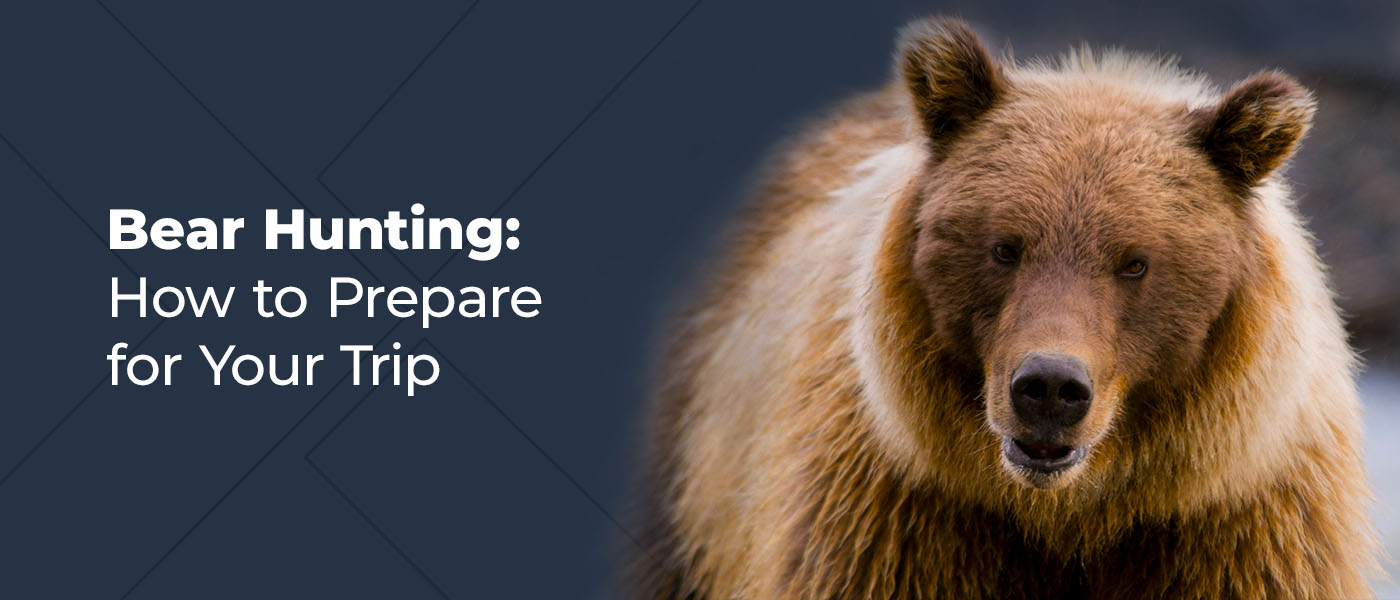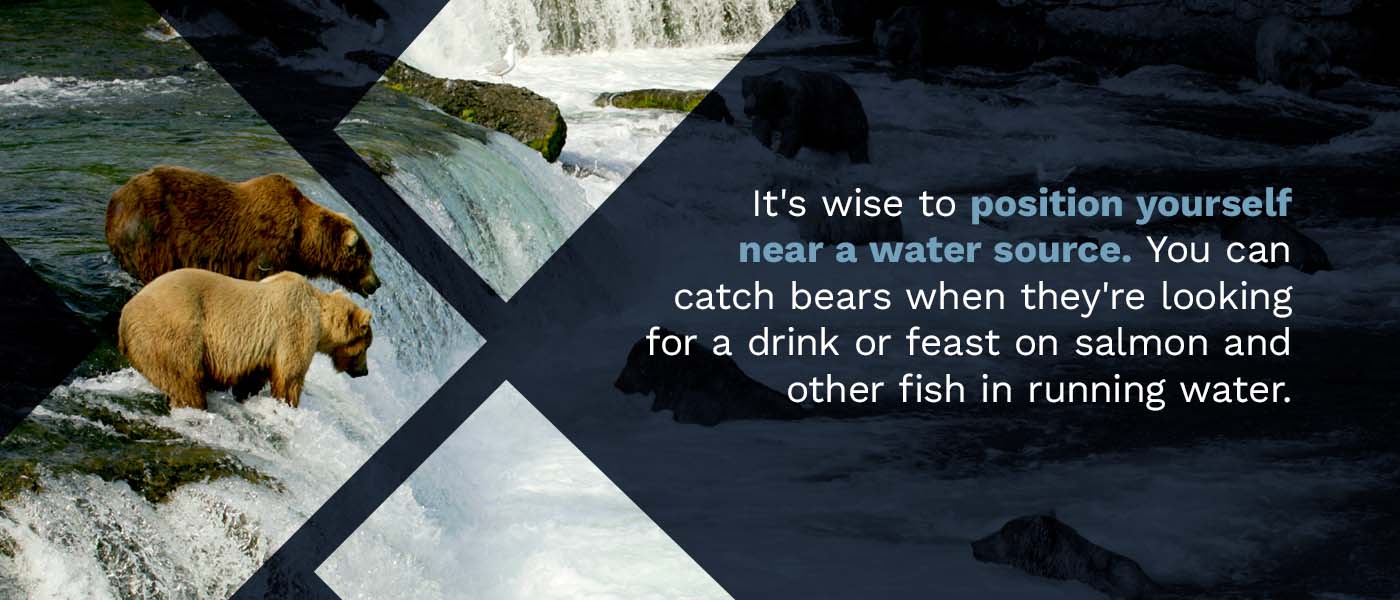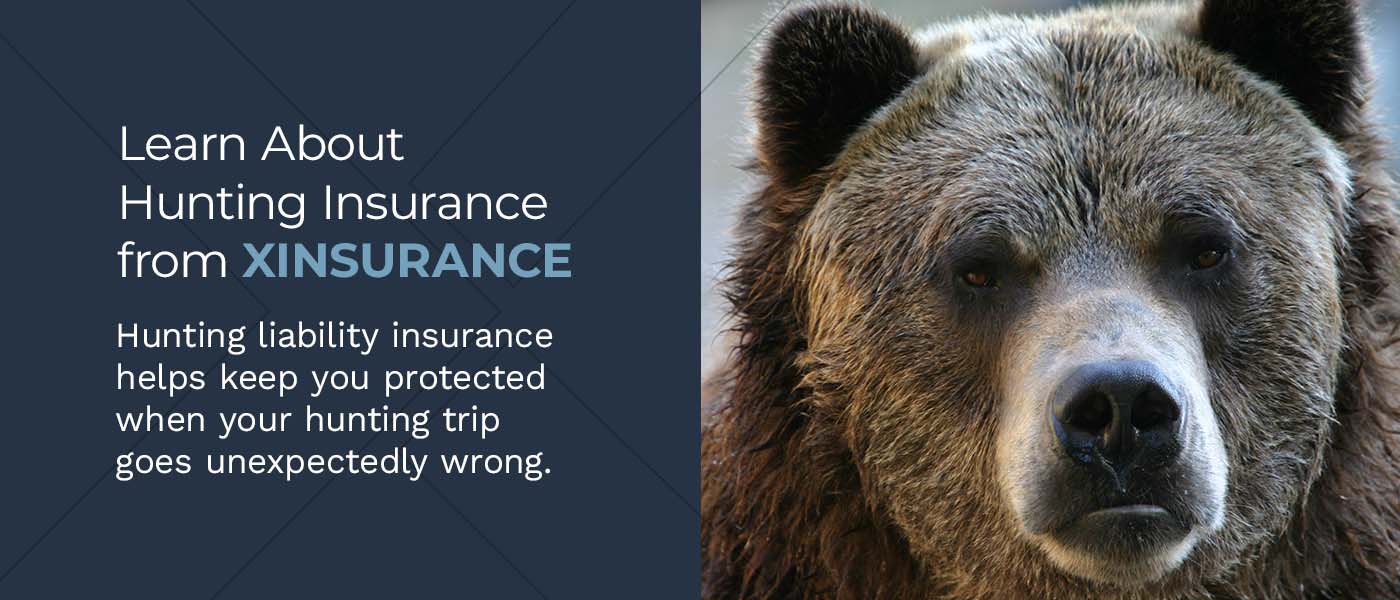
Bear Hunting: How to Prepare for Your Trip
Bear hunting involves a bit more risk than deer or small game hunting. Whether you’re hunting bear for the first time or are looking for ways to make your hunt more successful, implementing our tips for bear hunting can help you prepare. Learn a few tips to prepare yourself for your next bear hunting trip.
10 Tips to Prepare for Hunting Bear
The most important thing to obtain when preparing for any hunting trip is the relevant licenses and permits for the state in which you’ll be hunting. After you have the proper legal documentation, consider these 10 tips to help you prepare and make the most of your trip.
1. Bring Proper Gear
In terms of clothes and boots, what you wear for other types of hunting will be sufficient for bear hunting too. Make sure you wear appropriate gear for the time of year and weather conditions. In terms of tools and equipment, most bear hunters recommend having a portable device to repel mosquitos. It’s also best to pack a pair of binoculars and make sure you have a scope that works well in low-light conditions.
2. Look for Signs of Bear Activity
If you can find signs of bear activity, those are the areas you want to hunt in. To find the best location for your bear hunt, do some scouting as the weather gets warmer. Look for places bears could have dens so you have an idea of where they may come from.
Look for hair that got caught on tree branches or bushes. Keep an eye out for bear scat, paw prints and worn-down trails, as these can indicate heavily traveled routes. Bears also knock over and claw at saplings and small trees to mark their presence.
3. Position Yourself in Places a Bear Would Eat
Another good place to position yourself for a hunt is where bears would eat. After bears emerge from hibernation, they’re hungry and are already looking to start fattening up for their next hibernation. Areas with berry bushes or oat fields have good potential for bear travel. Anywhere with a food source gives you an advantage, and some bear hunting guides will even set out bait.
Additionally, it’s wise to position yourself near a water source. You can catch bears when they’re looking for a drink and they often feast on salmon and other fish in running water.
4. Bait with Oats and Cooking Oil
In some areas, hunters are allowed to bait bears. It’s common for guided bear hunts to lure bears in with bait, and if you’re in an area that permits baiting, you can use bait like oats and old cooking oil to draw a bear in.
Once you find an area with potential, mix oats and old cooking oil from restaurants in a 55-gallon steel drum. The smell of the oil will draw bears into your area to feed on the oats. Other bait options include smelly animal carcasses.
The smellier the bait the better. Bears can smell something from a few miles away, so if they can smell your bait, they’ll come looking for it.
5. Use Distress Calls
There are ways to lure bears into your hunting area without using bait. For example, you may choose to use distress calls. As spring progresses, deer and elk will give birth to their fawns and calves. At this point in the season, bears are often responsive to fawn and calf distress calls. If you’re hunting in an area that has populations of both bear and deer or elk, calling can be a useful hunting strategy.
6. Be Able to Field Judge
The ability to field judge the size of a bear in your vicinity will help you determine if it’s a decent-sized bear worth shooting. If you’re baiting with a large barrel, use this to help you gauge the bear’s size. If the shoulder of the bear comes near the top of a 55-gallon barrel, it’s a good-sized bear. You can also estimate the size of the bear by looking at the length of their legs and the position of their ears.
A good trophy bear often has a big belly that makes its legs look short and a large blocky head that makes the ears look wide-set. Look for these features to help you judge the size of the bear.
7. Know Proper Shot Placement
Proper shot placement is important when hunting any animal, though knowledge of a bear’s anatomy is essential to making an effective shot because it’s different than that of a deer. In addition to heavy bones, fat layers and thick fur, bears have a more compressed chest than other big game animals. This means that a shot to a bear’s shoulder or head will likely only wound the bear and can result in unnecessary suffering.
To make a good shot, aim directly behind the front shoulder when the leg facing you is stepping forward. To hit vital organs, your shot should be broadside or quartering away.
8. Field Dress Your Bear as Soon as Possible
Because bears are so large and have so much fat, their bodies retain a lot of heat, which is something that can quickly spoil the meat. If you’re able to shoot a bear, it’s important that you’re able to begin field-dressing your bear as soon as possible so the heat can escape. Using sharp knives, skin the bear and remove as much fat as possible to allow the meat to cool down properly.
9. Stay Safe
When you’re on a bear hunt, safety should be top of mind. While bear attacks are rare, they’re more likely to occur if you get between a sow and her cubs. Before climbing to your tree stand, inspect your tree and others nearby to ensure there are no cubs hiding up your tree. It’s important to know that bears are curious and will climb your tree to investigate your scent. If you’re hunting with a bow, you might also consider carrying a gun for protection.
Also, maintain proper weapon and firearms safety at all times. Most hunting injuries or deaths involve improper use or misfiring of firearms.
10. Get Bear Hunting Insurance
While bear hunting, safety measures can help reduce your risk of injury or damage, though it’s never guaranteed. When you go on any big hunting trip, it’s best to get hunting insurance. Hunting insurance helps to protect you against costly lawsuits if an accident were to occur. It’s always better to be safe than sorry with bear hunting insurance.
Learn About Hunting Insurance from XINSURANCE
Hunting liability insurance from XINSURANCE helps keep you protected when your hunting trip goes unexpectedly wrong. Whether your gun accidentally misfires or you miss a target and hit a house or person, you’ll be covered with XINSURANCE. Even if you were denied hunting insurance or had a claim refused in the past, we can help you find a solution.
To learn more about our hunting liability insurance or our other options for you, contact our team today.

Rick J. Lindsey hails from Salt Lake City, Utah. He began working in the mailroom of his father’s Salt Lake City insurance firm, getting his introduction to the business that became his lifelong career. Rick J. Lindsey quickly rose through the ranks while working in nearly every imaginable insurance industry job. As an entrepreneur, specialty lines underwriter, claims specialist, risk manager, and a licensed surplus lines broker, Rick J. Lindsey is highly skilled in all levels of leadership and execution. As he progressed on his career path, Rick J. Lindsey discovered an urgent need for insurers willing to write policies for high-risk individuals and businesses. He was frequently frustrated that he could not provide the liability protection these entities desperately needed to safeguard their assets. He also formed the belief that insurance companies acted too quickly to settle frivolous claims. Rick J. Lindsey decided to try a different approach. He started an insurance company and became the newly formed entity’s CEO. This opportunity has enabled Rick J. Lindsey to fill a void in the market and provide a valuable service to businesses, individuals, and insurance agents who write high-risk business. XINSURANCE also specializes in helping individuals and businesses who live a lifestyle or participate in activities that make them difficult for traditional carriers to insure. If you’ve been denied, non-renewed, or canceled coverage, don’t give up quite yet. Chances are XINSURANCE can help.



